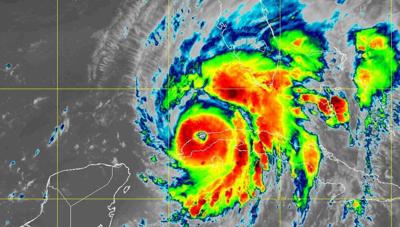New report shows the U.S. insurance industry provides inadequate coverage for climate-related disasters

Ceres, in collaboration with the ESG Initiative and Wharton Climate Center at the Wharton School, released a report today that finds U.S. climate-related disaster insurance is often inaccessible, unaffordable, or does not meet the needs of certain populations.
Inclusive Insurance for Climate-Related Disasters: A Roadmap for the United States examines the role of insurance in recovery from climate disaster across socioeconomic groups in the U.S. The analysis found low- to moderate-income households and communities of color are disproportionally affected by climate disasters and more likely to experience financial shocks but without financial savings, or insurance, to cover them.
The frequency and severity of natural disasters are increasing due to climate change. According to the NOAA, climate disasters have inflicted $2.3 trillion in costs since 1980. Between 2012 and 2021, these events cost the U.S. at least $1 trillion in total.
See related articles: U.S. Treasury Proposes Climate Data Collection Rule for Insurers, Verisk Extreme Event Solutions Releases Climate Change Projections for U.S. Hurricane and Caribbean Tropical Cyclone Models
Climate disasters translate into financial shocks to underserved communities. Costs include direct damage to property; expenses for evacuation and temporary living accommodations during repairs; interim expenses for disrupted utilities or transportation; and loss of income from business interruption.
The report’s authors are Carolyn Kousky, Associate Vice President of Economics and Policy at EDF, and Karina French, Manager, Climate Resilience Research at EDF.
The analysis provides actionable guidance for developing an inclusive insurance system that is affordable, accessible, transparent, people-centered, and just. It provides recommendations to U.S. policymakers, regulators, and the private sector including:
- Introducing new types of coverage for insurance to be fully inclusive.
- Subsidizing insurance for vulnerable households by both the public sector and private sectors.
- Creating a “Community Reinvestment Act” for the insurance sector to extend insurance coverage to unserved and underserved populations.
- Developing public/private partnerships to design new types of insurance coverage and disaster mitigation programs.
- Developing regulations to cover the new types of insurance coverage.
- Simplifying claims processes and coverage statements for all policyholders.
- Making insurance coverage and claims data public for research purposes.
- Developing new regulations to prevent discrimination in insurance.
This report was done in consultation with organizations in several affected communities. It includes studies from New York City, Portland, Oregon, and Puerto Rico that outline providing inclusive insurance to unserved and underserved communities.
At 1 pm ET on Feb. 22, Ceres will host a webinar diving further into report findings and recommendations. Register here.
Source: Ceres









